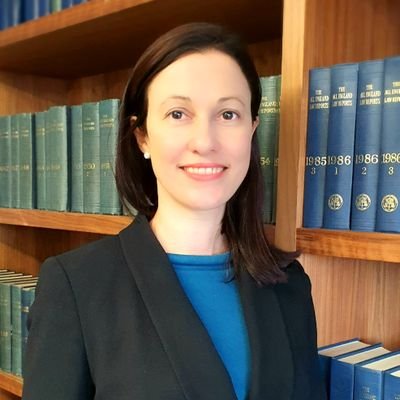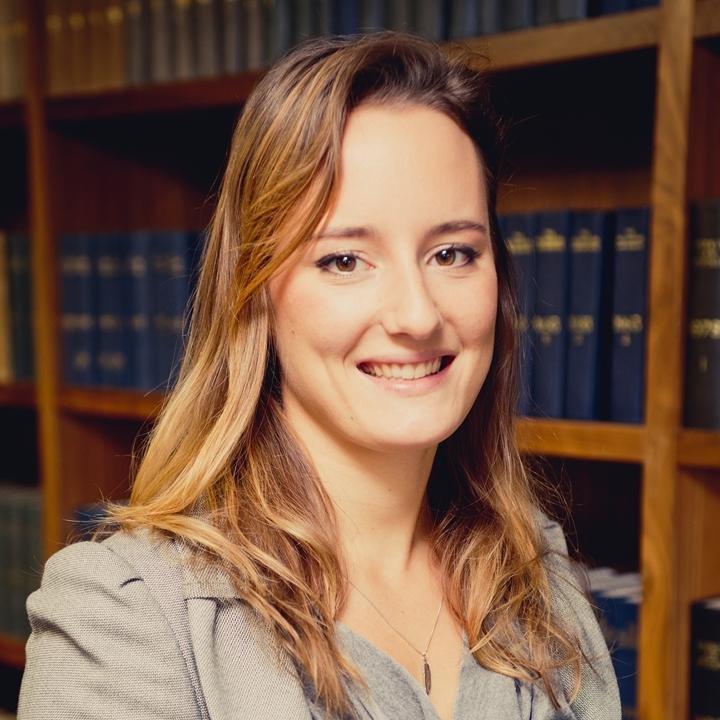SUMMER TERM EDITION


Ana Beduschi – New article on Artificial Intelligence in Humanitarian Action
In a new article published by the International Review of the Red Cross (Cambridge University Press), Dr Ana Beduschi investigates the opportunities and risks of using AI in humanitarian action. Data-driven artificial intelligence (AI) technologies are progressively transforming the humanitarian field, but these technologies bring about significant risks for the protection of vulnerable individuals and populations in situations of conflict and crisis. Ana examines whether and under what circumstances AI can be safely deployed to support the work of humanitarian actors in the field. Ana argues that AI has the potential to support humanitarian actors as they implement a paradigm shift from reactive to anticipatory approaches to humanitarian action. However, she recommends that the existing risks, including those relating to algorithmic bias and data privacy concerns, must be addressed as a priority if AI is to be put at the service of humanitarian action and not to be deployed at the expense of humanitarianism.
Lisa Cherkassky: Conference – ‘Posthumous Conception: Should We Be Procreating With the Dead?’
Lisa Cherkassky, Senior Lecturer in Law, is finishing her PhD through publication at Manchester University this year and has presented her work at their annual postgraduate research conference on Tuesday 10 May 2022 in Manchester. The topic is posthumous conception, and she asked whether we should be removing gametes (sperm and eggs) from the deceased, and whether a best interests test would suffice if the patient was instead in a comatose state. These are controversial topics because there is currently no law covering these procedures, but court orders are beginning to authorise them in several jurisdictions. Lisa has already published three articles in the field and has two out for review, and this presentation is an accumulation of her work on the topic since 2019.


Professor Caroline Fournet wrote a short contribution as part of a special issue of the Revue Historique des Armées – published by the Service Historique de la Défense, Ministère des Armées (France) – on ‘The war in Bosnia-Herzegovina: actors, territories and temporalities of the violence’.
Robert Herian – Publication of OUP by a major new edited collection on smart contracts
Published at the end of April 2022 by Oxford University Press, Dr Robert Herian has contributed a chapter to the first interdisciplinary account of smart contracts from a leading group of judges, practitioners, computer scientists, and legal scholars. This scrutinises the notion of extra-legal ‘smart contracts’ and makes inroads towards a more rigorous and technology-neutral understanding of encoded contracts. The edited collection provides an analysis of the earliest judicial responses to software-based contracts as well as into current law reform and thought leadership projects.


James Kolaczkowski – ‘The Evolution of Supplementary Pensions: 25 Years of Pension Reform’
Dr James Kolaczkowski has been an editor of, and a contributor to, a book published by Edward Elgar in January 2022 that investigates the evolution of supplementary pensions over the past 25 years. The experiences of 15 different countries are presented by numerous contributing authors with expertise in pensions research in their respective countries, from both academic and professional backgrounds and from a range of disciplines including law, social sciences and economics. There are 15 country specific chapters and four thematic chapters investigating the origin of pensions, international organisations, trust in pensions and changing attitudes to risk across different countries.
For more information, here is a link to the book on the Edward Elgar site: https://www.e-elgar.com/shop/isbn/9781800372979
James Kolaczkowski and David Barrett – Funded project investigating expectations and equality around the ‘Clawback’ of pensions
Dr James Kolaczkowski and Dr David Barrett have received funding from the Midland Clawback Campaign to investigate State Pension Integration, also known as ‘Clawback’ or ‘State Deduction’ that can result in the reduction of an occupational pension to take account of the state pension. Discretion as to how it is applied may mean that women and lower paid workers are disproportionately impacted. Interviews with members of the HSBC Bank (UK) Pension Scheme that were previously employed by the Midland Bank will be used as a case study, it is reported that 52,000 members of this scheme may be affected by Clawback.


Chris O’Meara – Reconceptualising the Right of Self-Defence against ‘Imminent’ Armed Attacks
As part of the Exeter Centre for International Law’s Working Paper Series, Dr Chris O’Meara’s latest paper discusses the legality under international law of self-defence by states in response to ‘imminent’ armed attacks. The paper examines scholarship and state practice that indicate that imminence may be viewed as comprising several contextual indicators that determine whether states may have recourse to self-defence. This conception of imminence raises fears of an overly expansive right of self-defence, which the paper seeks to mitigate. The paper is forthcoming in The Journal of the Use of Force and International Law.
Professor Richard Moorhead has recently been featured in two articles by notable news organisations. In The Economist’s Why is London so attractive to tainted foreign money?, Moorhead weighs in on the ethical concerns of lawyers prioritising short-term financial performance over their duties to the court. While in The Times’ Lawyers told that they must stop hiding behind privilege (paywall), Moorhead comments on discussions around the ethics of lawyers exposing wrongdoings in response to the Post Office Scandal.
“You can read more about Richard and the team’s work on the Post Office Scandal here. Their submissions were influential in widening Sir Wynn Williams’ Inquiry into the PO Scandal.

Richard Moorhead has, with Trevor Clark, Steven Vaughan, and Alan Brener, published an article on the FCA’s decision not to designate the Head of Legal for the purposes of the Senior manager’s regime. This reflected a flawed, rather old-fashioned view of lawyers as a neutral technicians and is rather surprising given the role of lawyers in banking scandals. They show how the FCA’s decision is potentially damaging to the public interest and failed to take into account that in-house lawyers are often important decision-makers and influencers within their organisations. They put the case for an alternative view; that in-house lawyers are professionals, with agency that requires them to act in accordance with ethical norms and means they should be made more accountable for their conduct.

Abhilash Nair – European Journal of Law and Technology (EJLT) comes to Exeter Law School
Exeter Law School is delighted to welcome the European Journal of Law and Technology (EJLT) as its new home. The EJLT is one of the oldest open access electronic law journals in Europe, formerly published as JILT (see, https://ejlt.org/index.php/ejlt/about##origins). The EJLT has made a significant contribution to the dissemination of research and scholarship in the areas of technology law and the use of technology in legal education by publishing high-quality articles for over 25 years. The journal is currently managed by Professor Abhilash Nair, who serves as the Editor-in-Chief, supported by a team of eminent legal scholars on the editorial board.
The journal welcomes submissions on a wide range of topics including, but not limited to, media, cybercrime, e-commerce, human rights issues, jurisprudence, artificial intelligence, privacy & data protection, intellectual property, ethics, use of technology in governance, courts and legal education, etc.
Dr Mathilde Pavis was invited to be a guest on the BBC Radio 4 show Front Row, to discuss some of the questions raised by the use of AI to enhance, extend, and replace human actors. Mathilde was joined by Paul Fleming, General Secretary of Equity and Dr David Leslie, Director of Ethics and Responsible Innovation at the Alan Turing Institute in the wake of the Stop AI Stealing the Show campaign as artificial intelligence becomes more prevalent across the entertainment industry. A full recording of the programme can be found by following the link above.


Rebecca Probert – The life-story of the Divorce Reform Act 1969
February 2022 saw the publication of Fifty Years of the Divorce Reform Act 1969, a collection of essays co-edited by Dr Joanna Miles, Dr Daniel Monk and Dr Rebecca Probert. The various contributions trace the passage of what was at the time a ground-breaking piece of legislation, its subsequent operation, and eventual repeal by the Divorce, Dissolution and Separation Act 2020, which came into force on 6 April 2022. Contributors included Dr Liz Trinder, whose Nuffield-funded research was crucial in making the case for reform.
Dr Natalie Sedacca has recently published a sole-authored article on domestic workers and the ‘family worker’ exemption from minimum wage in the Industrial Law Journal. The article explores a legislative provision that has allowed some live-in domestic workers to be paid below the minimum wage. It uses a feminist framework to criticise the exemption and its application to domestic workers, arguing that this exemplifies the devaluation of domestic labour. The article is available open access at: https://academic.oup.com/ilj/advance-article/doi/10.1093/indlaw/dwac005/6563675. An abridged version of the article is to be translated into Italian and published in an edited volume by ADAPT University Press.


Karen Walsh – Patents in a Changing Europe, EIPR
Dr Karen Walsh, together with Professor Aisling McMahon (Maynooth University) and Professor Naomi Hawkins (University of Sheffield), co-founders of the UK and Ireland Patent ScholarsNetwork, have recently guest edited a Special Issue of the European Intellectual Property Review published in March 2022 hosting peer reviewed contributions from Network Members.
The Special Issue on the topic of “Patents in a Changing Europe” comprises four articles focusing on a range of topics examining issues at the cutting-edge of how the European Patent system is grappling with the legal, social and technological changes it currently faces.
The issue features an editorial written by Karen and others reflecting on key aspects of how the current European patent system is affected by contemporary technological, legal and social developments. In this context, they call for greater critical reflection and dialogue within—and outside—the patent community, around the role and operation of patent law, to ensure it is fit for purpose and best aligned with the public interests at stake in our society.
In March, Dr Helena Wray was interviewed by both RTE Television News and Heart Radio about the government’s schemes for refugees fleeing the war in Ukraine. In both interviews, she discussed the problems arising from the British government’s insistence on keeping a visa requirement for Ukraine, and differences in approach towards those coming from Ukraine and refugees fleeing other conflicts.
